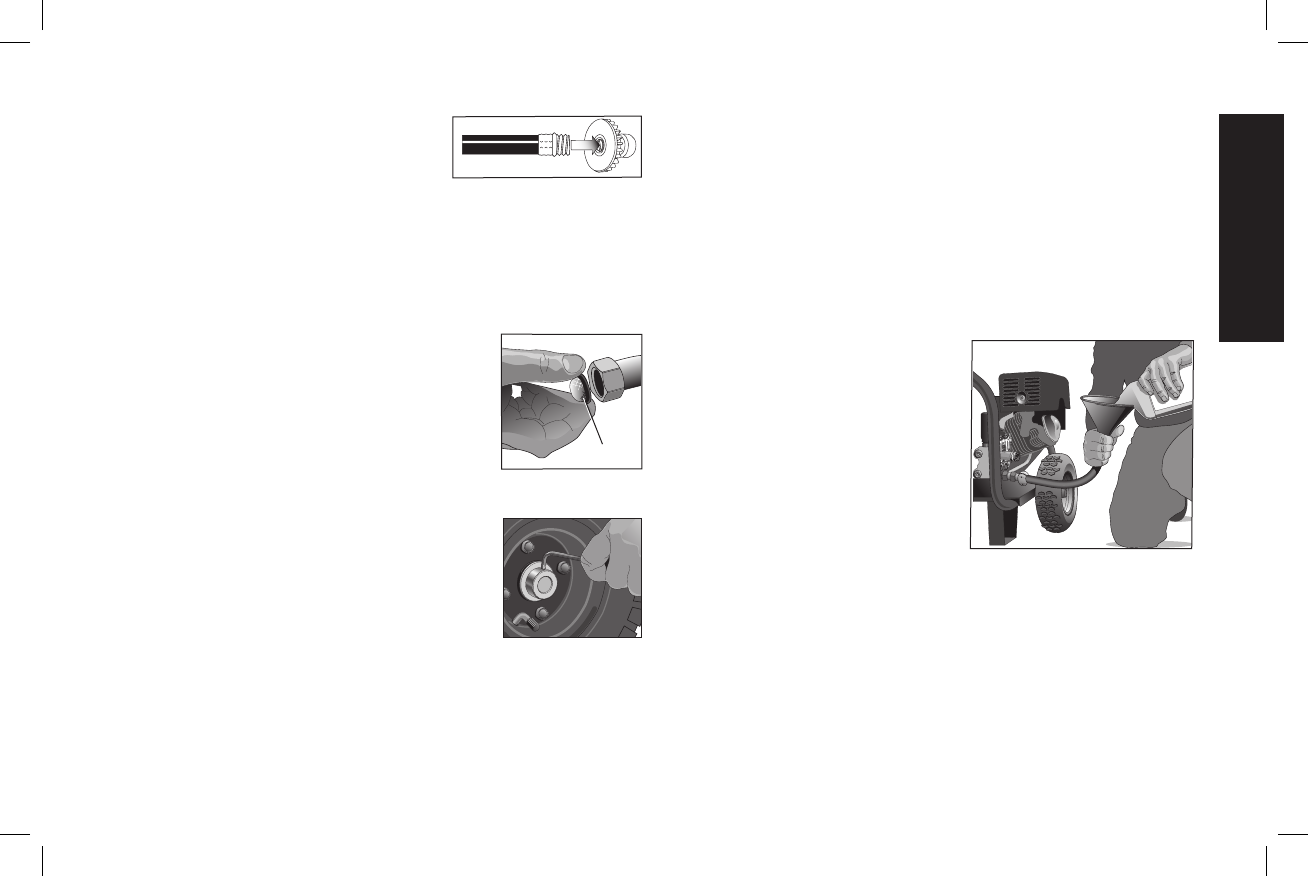
15
5. Direct water supply into spray wand to
back flush loosened particles for 30
seconds.
6. Reassemble the nozzle to the wand.
7. Reconnect spray wand to gun then turn on water supply.
8. Start pressure washer and place spray wand into high pressure
setting to test.
This filter screen (U) should be checked periodically and cleaned if
necessary.
1. Remove the filter screen (U) by grasping the
U
end and removing it from water inlet of
pump.
2. Clean filter by flushing it with water on both
sides.
3. Reinsert filter into water inlet of pump. Cone
side faces out.
NOTE: Do not operate pressure washer without
filter properly installed.
1. Using a 1/8" hex head wrench loosen set
screw in hub collar.
2. Slide hub collar from axle and remove the
tire.
Consult the engine instruction manual for the man u fac tur er's
recommendations for storage.
The manufacturer recommends using a pump protector/winter-
izer, such as D
eWALT winterizer (DP80) when storing the unit
for more than 30 days and/or when freezing temperatures are
expected. D
eWALT winterizer (DP80) is availabe at the store
where the pressure washer was purchased. If a pump protector/
winterizer is not available, RV antifreeze can be used as outlined in
the following steps.
NOTE: Using a pump protector/ winterizer or RV antifreeze helps to
provide proper lubrication to the internal seals of the pump regard-
less of temperature or environment.
1. Obtain a funnel, 6 oz. (170 mL)
of RV antifreeze and 16–36"
(40–91cm) of garden hose with a
male hose connector attached to
one end.
CAUTION: Risk of property damage.
an ti freeze is corrosive and can dam-
age pump.
2. Disconnect spark plug wire.
3. Connect length of garden
hose to water inlet of pump.
4. Add RV antifreeze to hose as shown.
5. Pull engine starter rope slowly several times until an ti freeze
comes out of high-pressure hose con nec tion of pump.
6. Remove garden hose from water inlet of pump.
7. Reconnect spark plug wire.


















